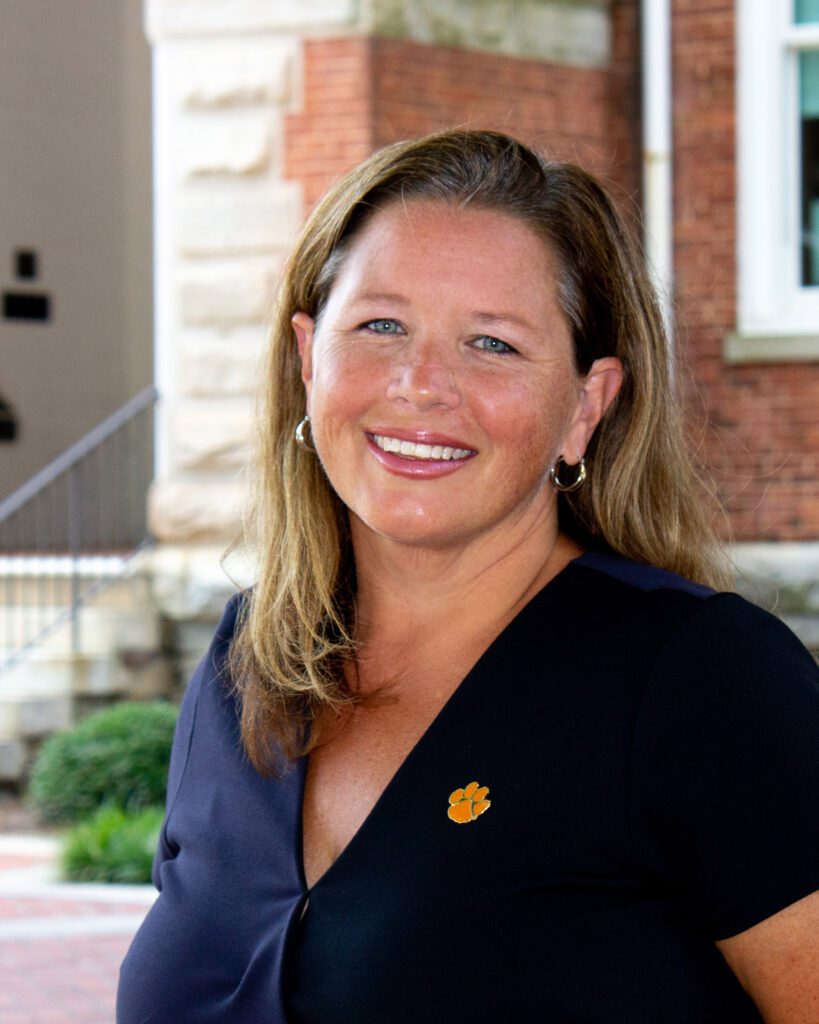Brooke Whitworth, associate professor in the Clemson University College of Education, wishes South Carolina teachers could simply read the new science standards released in 2021 and instantly download all the necessary knowledge and approaches to teach according to them.
But that is science fiction.
Whitworth said the next best thing is to have an educational leader in a school who can help guide other teachers or an entire district in effective science teaching. These science teacher leaders could bring physics, biology, engineering and chemistry to life for students because they have the knowledge of those subjects and a gift for imparting that knowledge in the classroom.
Whitworth and her team will use a $2.8 million award from the National Science Foundation (NSF) over six years to further develop existing science teachers in rural schools. The project will also prepare them as science leaders who can guide other teachers and support schools and districts in effective science teaching.
“A great science teacher really understands science concepts, but they also understand how to actually get kids excited about science,” Whitworth said, “but what if we had science leaders who got teachers just as excited about teaching science effectively? That would be every educator shifting in a positive direction, and I think it is what we can accomplish through this project.”
The project will consist of two cohorts of 12 master teacher fellows, one cohort serving students from kindergarten to fifth grade and the other cohort serving students in grades sixth through eighth. The cohorts will allow for a tight-knit community of fellows with focused content specific to their grade-level needs.
Researchers will focus the first two years on honing the teachers’ approach to science teaching, including coaching support, in-person learning and online professional development modules. The final three years will focus on developing the teachers as leaders who can create schoolwide or districtwide plans for science teaching. These development opportunities will include collaboration with their school administrators and presentations at National Science Teaching Association conferences.
The project will focus on rural schools with a high teacher turnover rate. Whitworth said that rural teachers often do not have the same access to resources or professional learning afforded to urban teachers, making developing science leaders much more important in a rural setting. She also said it is essential to help rural educators learn how to create relevant content for their students.
“A common phenomenon used in biology is the introduction of the Yellowstone wolf and how that affected that ecosystem,” Whitworth said, “but it might make more sense in the Southeast to talk about how a similar introduction could affect deer or turkey populations or a hunting season. That small change to a lesson can make all the difference for students.”
Whitworth, who grew up in Tokyo, Japan, and attended an American school there, said she benefitted from excellent science teachers and support as a child. She originally wanted to teach Japanese to English speakers but found her way to chemistry due to an interest in science and an inspiring teacher.

She remembers the school changing its vision statement to “developing compassionate, inquisitive learners prepared for global responsibility.” The school expected students to memorize it, and Whitworth did. She carries that vision statement with her to this day, but she sees this project transforming it for her and the next phase of her journey as a researcher.
“I always had that vision statement in mind when I wanted to be a teacher, but now I think I’ve changed ‘learner’ to ‘leader,’” Whitworth said. “I know that when I’ve had great leaders, I’ve always been more supported, and I’ve become more effective. A great science leader will not just teach science well; they will show others how to make science a part of all learning for students in every subject.”
Karen High and Julianne Wenner, both Clemson faculty, will serve as Co-PIs on the project. Anna Morrison will lead the coaching component of the grant, while Christy Brown will lead the design of the project’s instrumentation and asynchronous modules.
The project is funded by the NSF Robert Noyce Teacher Scholarship Program (Noyce), which invites innovative proposals that address the critical need for recruiting, preparing, and retaining highly effective elementary and secondary mathematics and science teachers and teacher leaders in high-need school districts.
Each teacher in the cohort must already have a master’s degree and commit to the project’s six-year timeline, and they will receive a $12,250 salary supplement each year. For more information on how a teacher, school or district can get involved with the research, contact Brooke Whitworth (bwhitwo@clemson.edu).
This material is based upon work supported by the National Science Foundation under Award No. 2243496.
Get in touch and we will connect you with the author or another expert.
Or email us at news@clemson.edu

